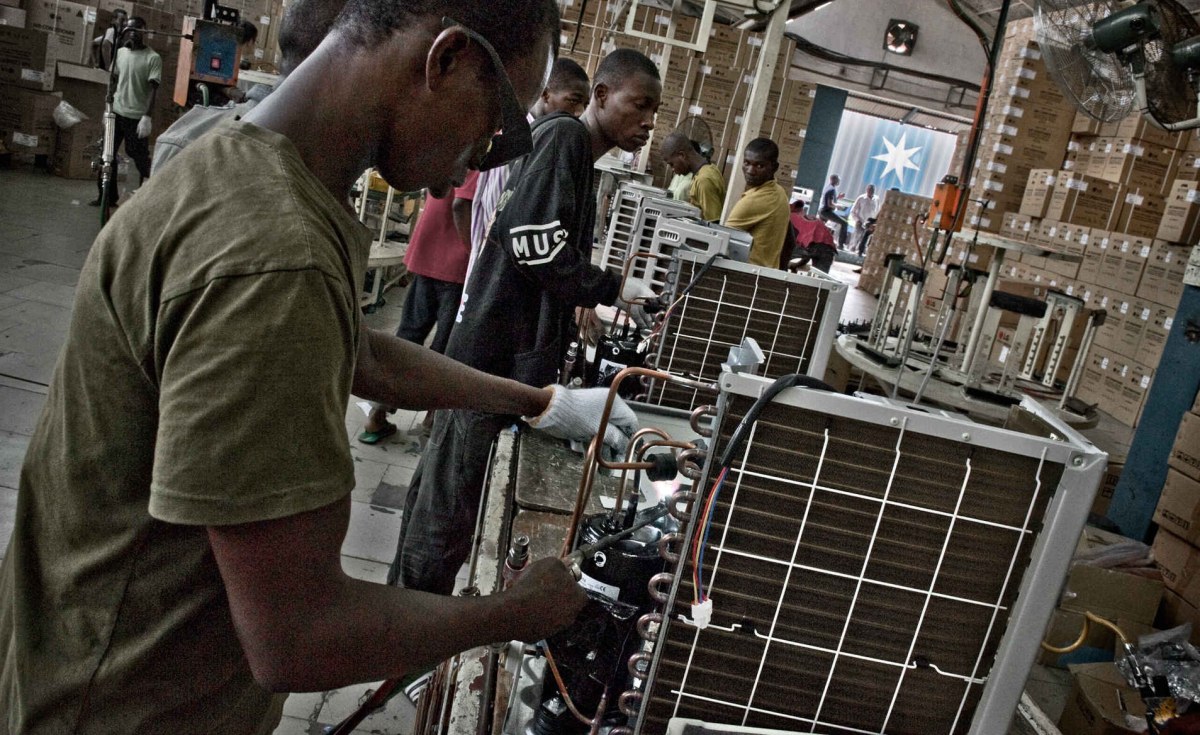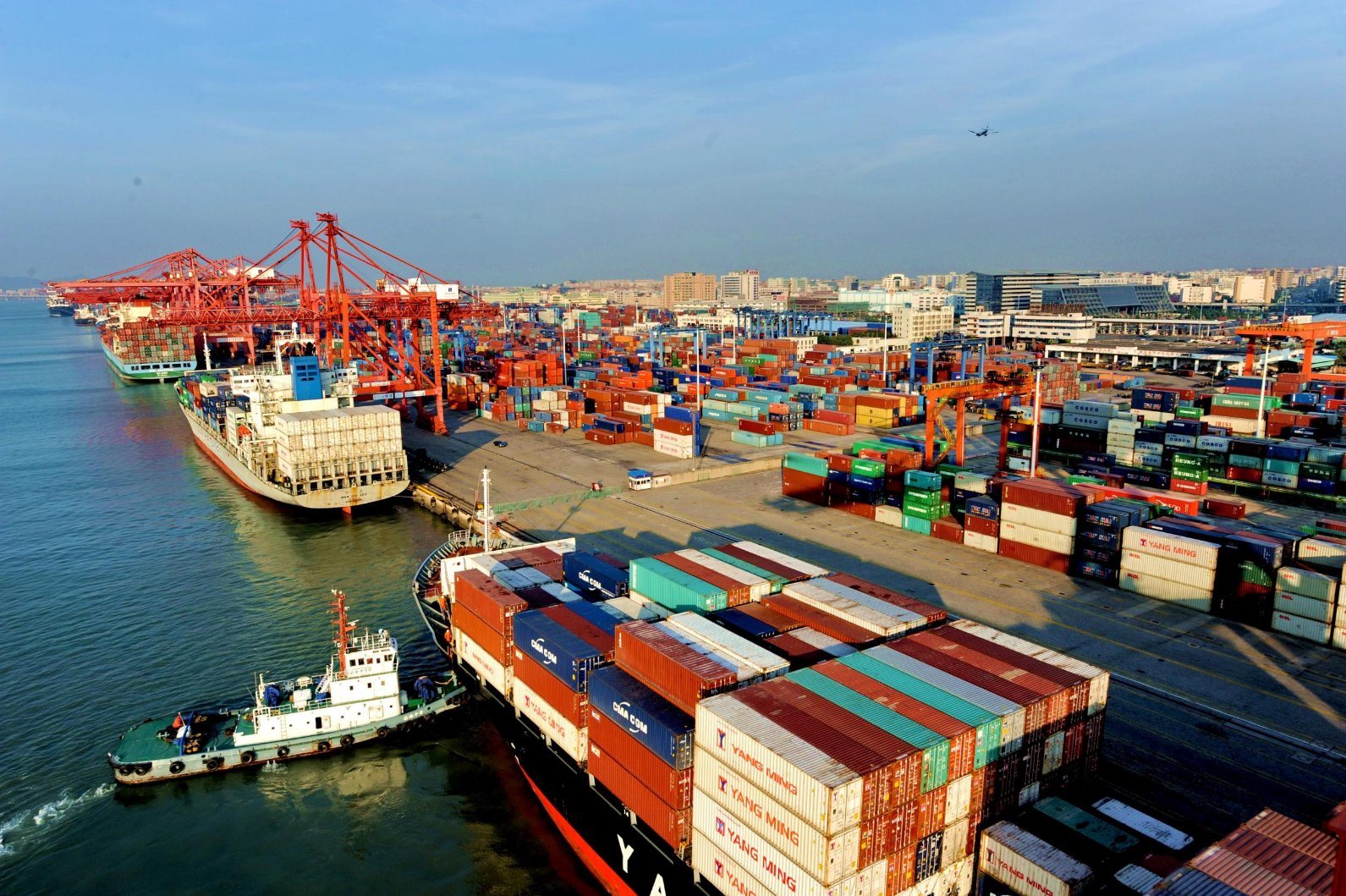VAT: Manufacturing sector contributed N864bn in 6 years – NBS
Share

The manufacturing sector contributed about N864 billion of the N3.63 trillion generated as Value Added Tax (VAT) from 2013 to 2018, an analysis by the National Bureau of Statistics (NBS) has revealed.
The NBS report on Sectoral Distribution of VAT showed that the manufacturing sector’s contribution represented 24 per cent of the total VAT generated within the six-year period.
A breakdown of the N3.63 trillion indicated that N481.5 billion was generated in 2013, N493.9 billion in 2014, while N759.4 billion and N777.51 billion, were generated in 2015 and 2016, respectively.
According to the report, N972.35 billion and N1.10 trillion were generated as VAT in 2017 and 2018, respectively, with the amount generated as 2018 VAT being the highest in the six-year period.
The manufacturing sector has eight sectoral activities among the 28 sectoral categories in the report.
Tha manufacturing sector’s sectoral activities included automobiles and assemblies, breweries, bottling and beverages; as well as chemicals, paints and allied industries.
Others are other manufacturing, petrochemical and petroleum refineries; pharmaceutical, soaps and toiletries; publishing, printing and paper packaging; and textile and garment industries.
For VAT in the six-year period, the automobiles and assemblies contributed N8,691,597,713.42, breweries, bottling and beverages added N192,028,180,262, and chemicals, paints and allied industries contributed N6,989,648,842.73.
Other manufacturing has N597,005,133,563, petrochemical and petroleum refineries added N37,013,858,414.6, and pharmaceutical, soaps and toiletries provided N7,131,243,714.78 to VAT.
Publishing, printing, paper packaging contributed N9,685,665,303.04, while textile and garment industry added N5,501,007,456.24 to the VAT in the six-year period.
Mr Hamma Kwajaffa, Director-General, Nigeria Textile Manufacturers Association, commended the manufacturing sector’s contribution to VAT, saying there was a correlation between economic growth and VAT revenue.
He said that increased contribution of manufacturing sector to VAT, especially in the fourth quarter of 2018, was driven by consumer spending during Christmas season.
Kwajaffa urged the Federal Government to improve infrastructure support, fiscal incentives, financing, anti-smuggling activities and implementation of the executive order on patronage of locally produced goods.
He said that doing these would boost the sector’s performance and invariably its contribution to VAT and Gross Domestic Product.
Similarly, Mr Muda Yusuf, Director-General of the Lagos Chamber of Commerce and Industry (LCCI), urged the government to create a better environment that would reduce cost of production and make manufacturers more competitive.
Yusuf said that government should expedite action to address infrastructure problem, especially power which, he said, was a huge challenge to the sector.
“Review some of the high tariffs on their inputs to increase their profitability and revenue contribution to government as well as company income tax to boost reinvestment and compliance to tax payment.
“If the environment is conducive for them through concessions, they will create more jobs. Aside the revenue benefits, there is also the social benefits for the society.
“Government can look at the regulatory environment which most manufacturers complain is too harsh; many of the regulators are like revenue-generating agencies on their own,” he said.
He urged the government to review the cost of fund for manufacturers and evolve better mechanism for long-term financing.
Also, Mr Taiwo Oyedele, Tax Leader, PricewaterhouseCoopers, West Africa, said that the Federal Government would require more reliable data on who the VAT payers were.
“According to reports, only three per cent of the taxpayers in the VAT net contributes 97 per cent of the revenue, which means a lot of companies that ought to be paying VAT are not in the tax net, while some are there, but are not remitting,” he said.
Oyedele said that VAT improvement in 2018, compared to other years, was reflective of the increased efforts of the Federal Inland Revenue Service to increase tax compliance among taxpayers. (NAN)

















